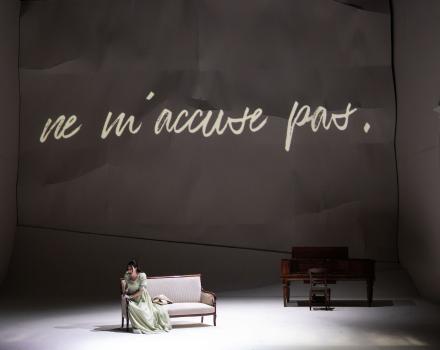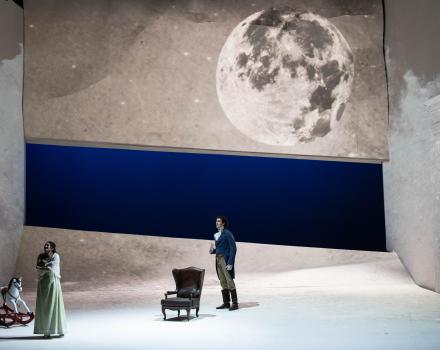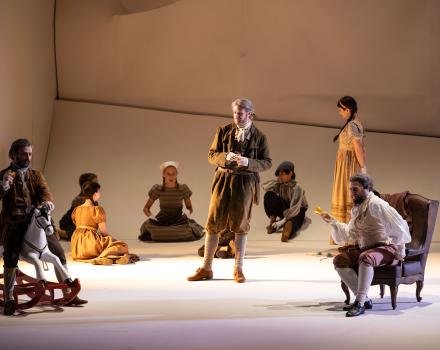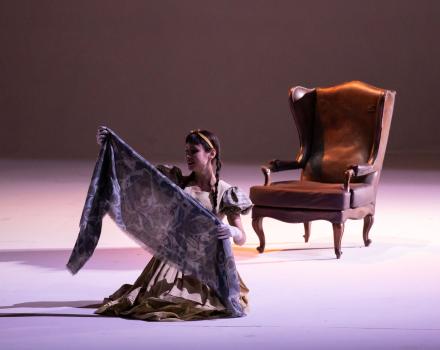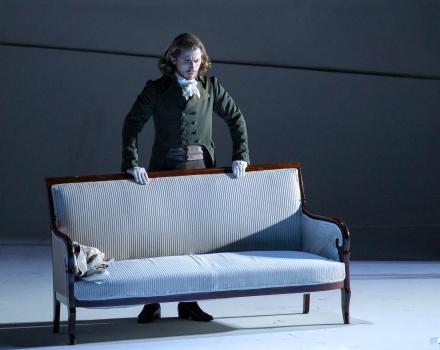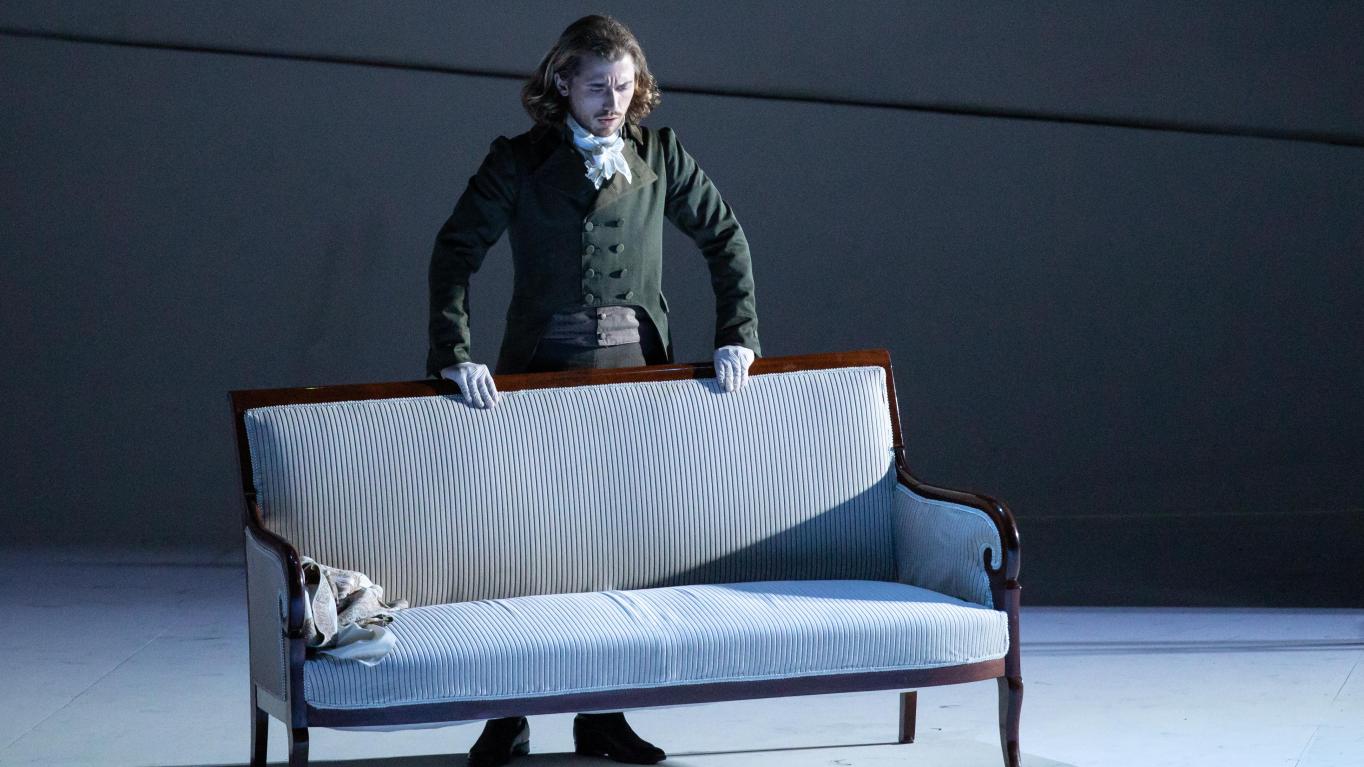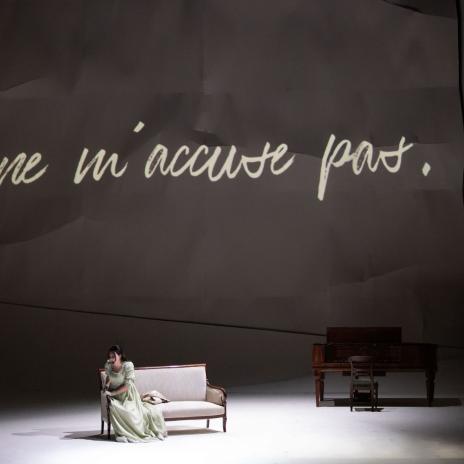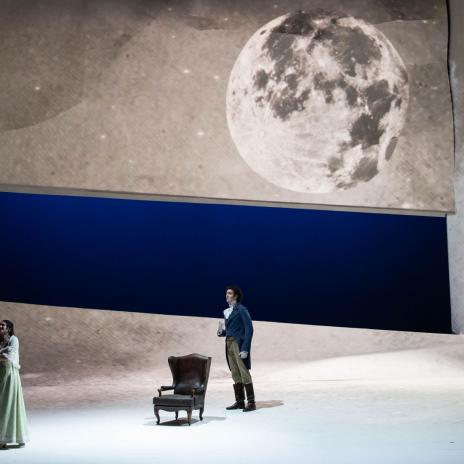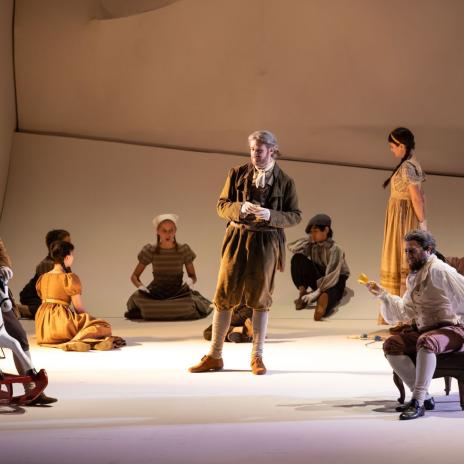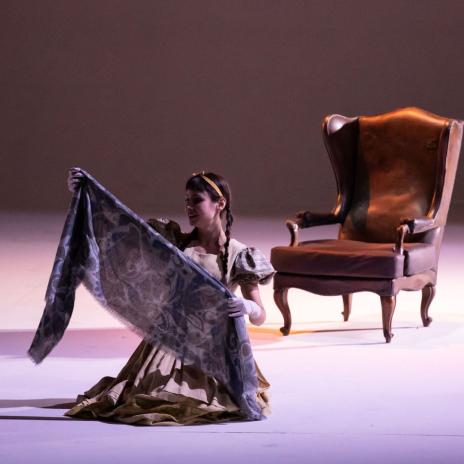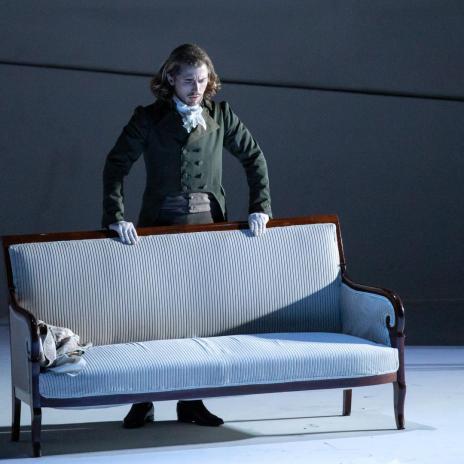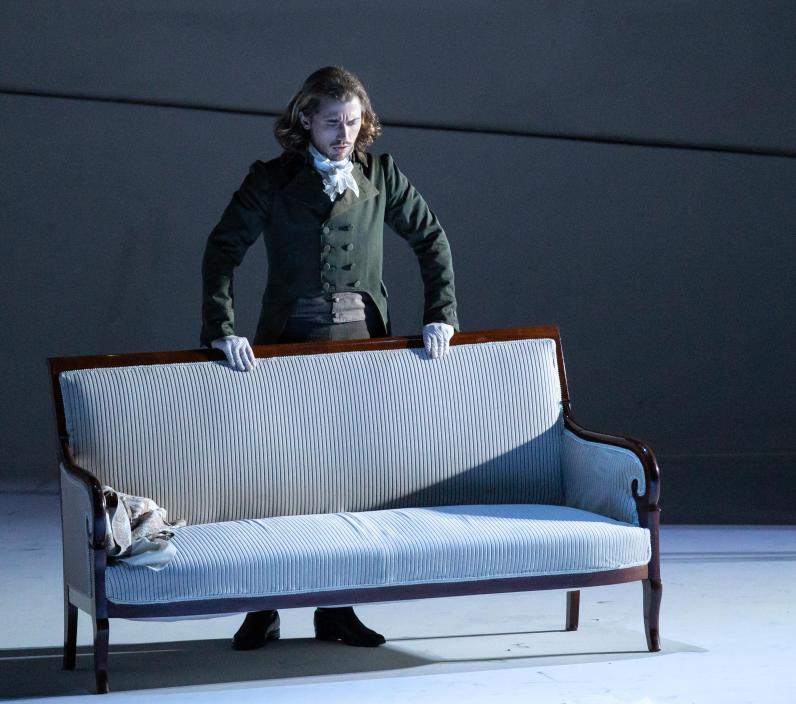

Werther

When a passionate poet falls for a young woman, she is stirred by his ardent declaration of love. Yet she is promised to another and ends up rejecting him, prompting him to make a fatal gesture.
With some of the most gorgeously romantic music ever written, Jules Massenet’s Werther adapts Goethe's wildly successful epistolary novel into one of the finest accomplishments in French opera. This production stars the winners of the 71st AsLiCo Singing Competition in 2020, whose youthful passion rivals Werther's own.
Cast
Werther | Gillen Munguía |
|---|---|
Le Bailli | Alberto Comes |
Charlotte | Karina Demurova |
Albert | Guido Dazzini |
Schmidt | Nicola Di Filippo |
Johann | Filippo Rotondo |
Sophie von Faninal | Maria Rita Combattelli |
Brühlmann | Andrea Gervasoni |
Kätchen | Luisa Bertoli |
Chorus | Coro voci bianche del Teatro Sociale di Como |
Orchestra | I Pomeriggi Musicali |
| ... | |
Music | Jules Massenet |
|---|---|
Conductor | Francesco Pasqualetti |
Director | Stefano Vizioli |
Sets | Emanuele Sinisi |
Lighting | Vincenzo Raponi |
Chorus Master | Lidia Basterretxea |
Visuals | Imaginarium Creative Studio |
Assistant Director | Pierluigi Vanelli |
Assistant set designer | Eleonora De Leo |
| ... | |
Video
The story
Act I
At his home in the Hessian town of Wetzlar, the bailiff tries to teach his youngest children a Christmas song. His two drinking buddies, Johann and Schmidt, are amused at his struggle to practice Christmas songs in the middle of summer. The bailiff informs them that his eldest daughter, Charlotte, is getting ready for the evening's ball, and that the young poet Werther is to accompany her as Charlotte's fiancé, Albert, is away on business.
Arriving at the bailiff’s house, Werther is overwhelmed by the glorious summer day and pays tribute to nature through poetry. He is interrupted by the sound of children: it is Charlotte who is hurrying to give her young siblings supper before she leaves for the evening’s entertainment. Werther is completely captivated by what he sees. The bailiff says that he has become a widower, and that it is Charlotte who takes care of the children and the house now that her mother is dead.
After Werther and Charlotte have left for the ball, Albert suddenly arrives after having been away from town for six months. He is disappointed that Charlotte is not at home but asks Sophie, the bailiff’s second daughter, not reveal that he is back: he wants it to be a surprise for everyone the next day.
After Werther and Charlotte return from the ball, Werther confesses his love for her. But he becomes full of despair when Charlotte tells him what she promised her mother on her deathbed: that she must take care of the family and marry Albert.
Act II
It is a brilliant and sunny Sunday, and Albert and Charlotte have been married for three months. Together with other guests, they flock to the church to celebrate the golden wedding day of the pastor.
Werther observes Charlotte and her husband from a distance and he mourns the loss of what he has decided is the great love of his life. Albert tells Werther that he understands his despair and forgives him. Werther lies to Albert that he now sees Charlotte as nothing more than a good friend.
The two men are interrupted by the fun-loving Sophie who declares that as the air is full of merriment she’d like to celebrate and have the first dance with Werther. But Werther retires, ashamed at having lied to Albert about his love for Charlotte. When Charlotte arrives, Werther again declares his passion for her.
Charlotte, a little distraught, repeats that she must follow her duty and that she belongs to another. She demands that Werther leave town, but weakens and asks him to come back later, at Christmas time. Werther states that he will never return again.
Act III
Autumn has turned to winter, and on Christmas Eve Charlotte reads all the letters from Werther with despair and overwhelming emotion. Sophie tries to cheer her big sister up, but to no avail.
Werther suddenly arrives, and he and Charlotte exchange memories of the time before they were separated. Werther quotes from a passionate poem he was in the process of translating. The meeting is intense, but Werther leaves Charlotte abruptly.
Albert comes home and tells Charlotte he has heard from townsfolk that Werther has been visiting her. He also shows her a letter he has just received from Werther: ‘I'm going on a long journey. Will you lend me your guns?’ Charlotte senses a terrible looming tragedy and rushes away.
Act IV
That night, Charlotte makes her way to Werther’s house. In his room, she finds him wounded, but he forbids her to fetch for help. They finally embrace and she declares her love for him before he dies in her arms.
Insights
5 things to know about Werther
1° Conflicting desires
Written in just five-and-a-half weeks in 1774, Johann Wolfgang von Goethe’s The Sorrows of Young Werther captured better than anything that had come before the conflict between individual freedom and the strict framework of social conventions. The loosely autobiographical epistolary novel had a profound impact on its readers of that time and it thrust its young author into the international literary limelight. In the novel, Werther is depicted as a passionate, young dreamer. All sensory impressions are experienced with full force, and when he falls in love with Charlotte, despite her being engaged, reason makes way for fierce emotions. Line by line, the reader can follow Werther's emotional life, which becomes more and more painful every day. He cannot get what he loves so much, and this inner pain grows to be so unbearable that he finally commits suicide.
2° The age of anxiety
Just over 100 years later, the novel received a renewed interest through Jules Massenet's opera, which was completed in 1887. Goethe's detailed depiction of inner feelings, the pessimism of Werther’s tragic end and the question of women's place in society resonated with the anxieties of fin de siècle France. Massenet's three librettists - Édouard Blau, Paul Milliet and Georges Hartmann - interpreted the novel as contemporary Parisians but kept the action in Wetzlar, the Hessian town where Goethe had lived at the time. The result is an intimate and effective drama where both Charlotte and Werther fight each other's inner struggles until they finally embrace and open up to each other what it is already too late.
3° Melodies and motifs
For Massenet, this was a challenging text to set to music. Admittedly, he was a master of atmospheric tone-setting, but the inner life of the soul required a special grip. As with many composers of the 1880s, he was inspired by Richard Wagner's use of leitmotifs. Without directly copying the German, who had died two years before work began on Werther, Massenet was able to plant memorable musical motifs to illustrate particular emotional and dramatic moments. Inserted into a stream of romantic melodies, they helped to mirror the tension felt by the two protagonists, Werther and Charlotte. In this way, Massenet was able to distinguish between outer and inner action by means of musical instruments and at the same time create depth and contrast in the work as a whole.
For the conductor Francesco Pasqualetti, the orchestra in Werther sings a melody and the singers on stage accompany it. In this way, Massenet overturns the usual definition of opera writing. ‘It is as if the orchestra is saying or singing what is no longer allowed to be said with the voice. What cannot be said with the voice.‘
4° A crumpled sheet of paper
The stage director Stefano Vizioli saw himself confronted with unexpected difficulties when he set to work on staging Werther. Convinced of the fundamental significance of physical contact and of body language as a vehicle for vocal expression, he agonised about the way he would be able to produce the opera with the current safety measures. How would the scene of the kiss play out? How about the one of the children playing?
Inspiration came when the set designer Emanuele Sinisi and he imagined a large white sheet of paper crumpled up by a nervous hand, ‘a sheet that sometimes welcomes words that are composed and broken up, stained by ink that drains, becomes tears or blood’. This scenographic ploy relates the action to Goethe’s original epistolary novel while poetically justifying the distance between the characters.
5° A stage for talented young singers
Drawing on the emerging talent of the 71st edition of the AsLiCo Competition for young opera singers (6 January 2020), this production continues the longstanding tradition of staging high calibre opera performances starring the contest’s winning singers. Other finalists and winners of previous editions have also joined the cast. Before beginning the rehearsal process, the singers have attended the AsLiCo Academy for a year, including masterclasses with famous Italian singers Silvia Dalla Benetta and Roberto De Candia, Marco Vinco and Sonia Ganassi. The training continued during the months of lockdown with diction and language lessons.
Gallery
